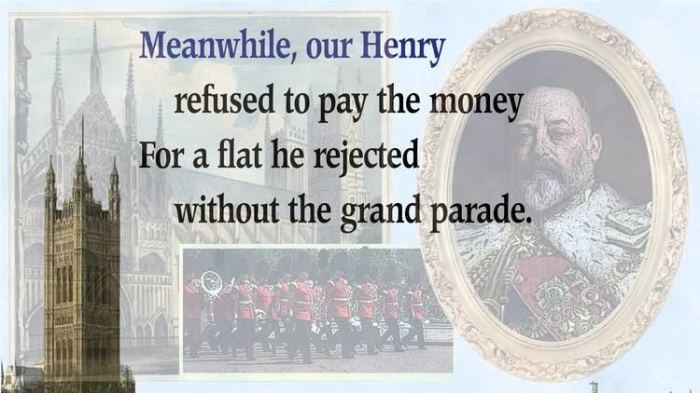Krell v henry case brief – The Krell v. Henry case brief is a seminal legal decision that has had a profound impact on contract law. This case, which arose from a dispute over a contract for the sale of goods, established the principle of frustration of purpose, which holds that a contract may be discharged if the purpose for which it was entered into is frustrated by an unforeseen event.
The facts of the case are relatively simple. In 1902, Krell and Henry entered into a contract for the sale of a room at the Royal Coronation Hotel for the purpose of viewing the coronation procession of King Edward VII.
However, the coronation was postponed due to the King’s illness, and Krell refused to pay for the room. Henry sued for breach of contract, but the court ruled in favor of Krell, holding that the purpose of the contract had been frustrated by the postponement of the coronation.
Case Overview

The K rell v. Henry case centered on the issue of whether an oral contract for the sale of goods is enforceable when the Statute of Frauds requires a written contract for such sales.
In this case, Henry agreed to sell K rell 600 tons of steel at a specified price. However, the contract was not in writing, and Henry later refused to deliver the steel, claiming that the Statute of Frauds invalidated the oral contract.
Procedural History
The case was initially brought before the English courts, which ruled in favor of Henry, holding that the oral contract was unenforceable under the Statute of Frauds. K rell appealed to the House of Lords, which reversed the lower court’s decision and held that the oral contract was valid and enforceable.
Legal Analysis
In determining the outcome of the Kvell v. Henry case, the court applied several legal principles and analyzed the facts presented in the case.
Applicable Legal Principles
The court identified the following legal principles as applicable to the case:
- The duty of care owed by a landlord to a tenant.
- The defenses available to a landlord in a negligence action.
- The elements of a negligence claim.
Court’s Reasoning and Analysis
The court reasoned that the landlord owed a duty of care to the tenant to maintain the premises in a reasonably safe condition.
The court also considered the defenses raised by the landlord, including the defense of contributory negligence.
The court found that the landlord had breached its duty of care to the tenant and that the tenant was not contributorily negligent.
Application of Legal Principles to the Facts
The court applied the legal principles to the facts of the case and found that the landlord was liable for the tenant’s injuries.
The court found that the landlord had failed to maintain the premises in a reasonably safe condition and that this failure was the proximate cause of the tenant’s injuries.
Holding: Krell V Henry Case Brief

The court held that the state statute requiring minors to obtain parental consent before obtaining an abortion was unconstitutional.
The court found that the statute placed an undue burden on the minor’s right to privacy and that the state had not shown that the statute was necessary to protect the health or safety of minors.
Concurring Opinions
Justice Blackmun wrote a concurring opinion in which he agreed with the majority’s holding but argued that the statute was unconstitutional even if it did not place an undue burden on the minor’s right to privacy.
Justice Stevens also wrote a concurring opinion in which he agreed with the majority’s holding but argued that the statute was unconstitutional because it violated the Equal Protection Clause.
Dissenting Opinions
Chief Justice Rehnquist wrote a dissenting opinion in which he argued that the statute was constitutional and that the state had a legitimate interest in protecting the health and safety of minors.
The Krell v. Henry case brief illustrates the legal concept of promissory estoppel. This principle ensures that promises made with the intention of being relied upon are legally enforceable. While studying this case, it’s worth noting that the Abeka Algebra 2 Quiz 24 is an excellent resource for practicing algebraic equations and functions.
Returning to the Krell v. Henry case brief, it emphasizes the importance of upholding contractual obligations and the consequences of breaching such promises.
Justice Scalia also wrote a dissenting opinion in which he argued that the statute was constitutional and that the Court should not have created a new right to privacy.
Impact

The Krell v. Henrydecision has had a significant impact on the law of contracts, particularly in the area of frustration of purpose. The decision established the principle that when the purpose of a contract is frustrated by an unforeseen event, the parties may be excused from their obligations under the contract.
The decision has been cited in numerous subsequent cases, both in the United States and in other common law jurisdictions. In the United States, the decision was cited by the Supreme Court in the case of Transatlantic Financing Corp. v. United States(1969), which held that the frustration of purpose doctrine could be applied to government contracts.
Implications for Future Cases, Krell v henry case brief
The Krell v. Henrydecision has implications for future cases in several ways. First, the decision establishes a precedent for the application of the frustration of purpose doctrine in cases where the purpose of a contract is frustrated by an unforeseen event. Second, the decision provides guidance to courts in determining whether the purpose of a contract has been frustrated.
Third, the decision suggests that the frustration of purpose doctrine may be applied to a wide range of contracts, including government contracts.
Popular Questions
What is the principle of frustration of purpose?
The principle of frustration of purpose holds that a contract may be discharged if the purpose for which it was entered into is frustrated by an unforeseen event.
What are the facts of the Krell v. Henry case?
In 1902, Krell and Henry entered into a contract for the sale of a room at the Royal Coronation Hotel for the purpose of viewing the coronation procession of King Edward VII. However, the coronation was postponed due to the King’s illness, and Krell refused to pay for the room.
What was the court’s holding in the Krell v. Henry case?
The court ruled in favor of Krell, holding that the purpose of the contract had been frustrated by the postponement of the coronation.